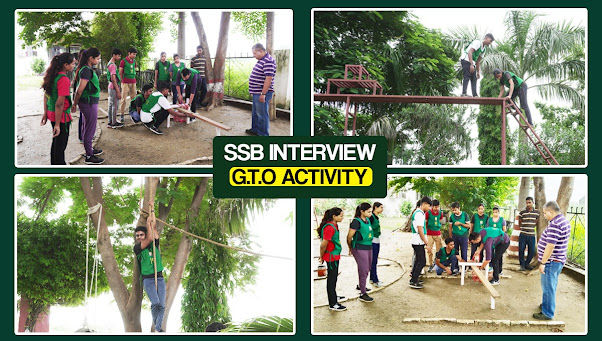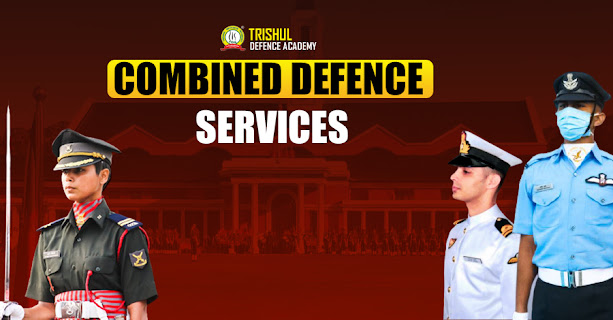NDA Coaching In Bihar
National Defence Academy (NDA) / Naval Academy (NA) assessment is directed by Union Public Service Commission (UPSC) two times every year with the intent to Enroll youthful and lively up and comers in the Indian Armed Forces including Navy, Air Force and Army. As a rule, this test is led in the period of April and September. Competitors who qualify this test would go for a long-time instructional class. Subsequent to finishing this 3 years course, Army cadets move to Indian Military Academy (IMA) at Dehradun, Naval Cadets move to Indian Naval Academy at Ezhimala & Air Force Cadets move to the Indian Air Force Academy at Hyderabad. In the wake of finishing one year of preparation at the separate institutes, they are appointed as officials in their Individual Administrations.
Trishul Defence Academy is one Of The Best NDA Coaching In Bihar among the foremost noticeable establishments that provide brilliant NDA Coaching In Bihar instructing for sophistication 11th and 12th passed students. We've been conveying remarkable outcomes under the mentorship of our master personnel who have long periods of involvement with the separate field. Every Educator and Coach has astounding aptitudes and knowledge to organize understudies toward their vocation objectives. Trishul Defence Academy is the best NDA Coaching Center In Bihar which is established in Allahabad for the last 19 years. We endeavor to give the best training to aspirants who need to work sacrificially for the Country. On the off chance that you are prepared to serve your incomparable valor for the country's advantage, go along with us now.
Our NDA Written Exam class is well-outfitted with an astonishing foundation in the structure, books, study material, and adequate guest plans. Additionally, we have proficient specialists that furnish every understudy with the correct method to get the best outcome in the NDA Written Exam. Not just this, we have powerful orators and teachers who center around spurring understudies with the goal that they can accomplish something uncommon for the nation.
Time is valuable. Try not to squander it. Essentially enlist yourself in our NDA Exam Centre in Bihar and begin planning for NDA Written Exam. We wish you Good Luck in your future.
ELIGIBILITY CRITERIA
Nationality
Candidates must be –
- 1. A Indian Citizen or
- 2. A subject of Nepal or
- 3. A subject of Bhutan
- 4. A Tibetan refugee who came to visit India before 01 Jan 1962 with the intention of permanently settling in India or
- 5. A person originally Indian who has migrated from Pakistan, Burma, Sri Lanka and East African Countries of Kenya, Uganda, the United Republic of Tanzania, Zambia, Malawi, Zaire and Ethiopia or Vietnam with the intention of permanently settling in India.
Note: Provided that a candidate belonging to categories 2, 3, 4 and 5 shall be a private in whose favour a certificate of eligibility has been issued by the Indian government. Certificate of eligibility won’t, however, be necessary just in case of candidates who are Gorkha subjects of Nepal.
PROCEDURE
The candidates who have passed the Union Public Service Commission (UPSC) written examination, or who, in the case of the Territorial Army have been recommended by a Preliminary Interview Board (PIB), or, who have been asked to present to the Service Selection Board are allocated an SSB center to attend. Service candidates attend via movement orders made by their superiors.
Day 1
On the day candidate has to report, he has to follow the instructions as mentioned in the SSB call letter. Generally, the candidate has to report at the railway station in the morning between 7 Am – 8 Am, and from there, candidates are escorted to the board by one of the SSB official. On the very same day, candidates are made to sit in the testing hall where they have to present their educational documents for verification and are allotted a number (called a Chest Number) by which they will be able to identify the candidates throughout the process. A briefing about the schedule, various tests, and general instructions are given.
Day 1, Screening test – Stage I
On Day 1, stage one of testing is administered. This includes a verbal and non-verbal intelligence test (About 50 questions each) and then a Picture Perception and Description Test (PPDT). In this test, a picture, either hazy or clear is shown to the candidates for 30 seconds. Each candidate observes it and then, in the next one minute, must record the number of characters seen in the picture. Then, in four minutes, each candidate must in over seventy words, make a story from the picture (and not just describe the picture). The candidate must record the mood, approximate age, and gender of the first character they saw, known as the "main character". In stage two of the PPDT, the candidates are given their stories, which they may revise. Then, in a group, each candidate must narrate his story in under one minute. The group is then asked to create a common story involving each or their perceived picture stories.
After the completion of these tests, unsuccessful candidates are dismissed. Other candidates are short-listed. They must complete the first of up to five personal information questionnaires which must each be recorded in the same manner. The personal information questionnaire is the basis for the individual candidate interview.
Day 2, Psychology test – Stage II
On Day 2, a Thematic Apperception Test (TAT) or picture story writing is administered. It is similar to the PPDT, but the picture used is clear. Again the candidates are shown a picture for thirty seconds and then write a story in the next four minutes. Twelve such pictures are shown sequentially. The last picture is a blank slide inviting the candidates to write a story of their choice. Candidates do not need to remember the number of characters in each picture and there is no group discussion.
Also administered on the second day is a Word Association Test. The candidates are shown sixty simple, everyday words in sequence. Each is shown for fifteen seconds. For each word, the candidates write the first thought that comes to mind in response to the word.
Other tests administered on day two are the Situation Reaction Test in which a booklet of 60 situations is given in which responses are to be completed in 30 minutes. and the Self Description Test which consists of 5 questions asking about the candidate's parent's, teacher's, friend's and his own perception about himself.
Days 3 and 4, Group test by GTO (Group Testing Officer) – Stage II
On the third and fourth days, there are tasks including group discussion; group (military) planning exercises; progressive group tasks; small (half) group tasks; individual tasks (obstacles); group obstacle or "snake race"; command tasks; a lecturette and a final group task.
Days 2, 3 & 4, Interview by IO (Interviewing Officer) – Stage II
On day 2, 3 or 4 along with GTO, individual candidate interview The interview is conducted by the interviewing officer. It is based on the personal information questionnaires filled by the candidates on day 1 and other general knowledge.
Day 5, final assessment and results(Conference)
On day five, All the officers in Proper Uniform to attend the conference each candidate has a conversation with a panel of assessors. The assessors look for confidence and expression when speaking; a positive attitude in adversity and in life; and honesty. Following this, the final results are announced. Successful candidates remain for an intensive medical examination taking three to five days at a military hospital.
PILOT APTITUDE BATTERY TEST (PABT – ONCE IN A LIFETIME TEST)
The Pilot Aptitude Battery Test (PABT) is administered to candidates hoping to join the Flying Branches only of the Indian Air Force, Indian Navy, Indian Army or Indian Coast Guard. The PABT is conducted during the SSB interview. Candidates may sit the PABT only once. The PABT includes the Instrument Battery Test, a Sensory Motor Apparatus Test (SMA) and a Control Velocity Test (CVT).
More recently, the "Computerized Pilot Selection System" (CPSS) has been used. It was created by former president of India Dr. A.P.J. Abdul Kalam with the Defence Institute of Psychological Research and the Air Defence Establishment, groups within the Defence Research and Development Organisation. It was developed to determine aptitude for use of intellect with respect to advanced aircraft.
CPSS machine simulates an aircraft cockpit. Video games played by the candidate on a screen in front of him is scored best of three games. It tests hand, leg, vision and hearing coordination.
INSTRUMENT BATTERY TEST
The Instrument Battery Test (INSB0 is a paper, pencil and machine based test. It has two parts. The candidate must listen to a briefing and then interpret the dials of an instrument panel of an aircraft. If the candidate does well, they proceed to the machine part of the test. The machine test includes the Sensory Motor Apparatus Test (SMA) and the Control Velocity Test (CVT) which examine a candidate's co-ordination. The tests are administered in one day and candidates may only ever attempt the tests once.
INDIAN COAST GUARD SELECTION BOARD
The Indian Coast Guard (ICG) is part of the Ministry of Defence. ICG officer selection is similar to SSB and is conducted in two phases. Phase 1 is called the Preliminary Selection Board Exam (PBS) which is similar to the SSB screening stage. Phase 2, the Final Selection Board, includes psychological tests, group tasks, a personal interview and an assessor' conference. shortlisted candidates proceed to later testing.




Comments
Post a Comment